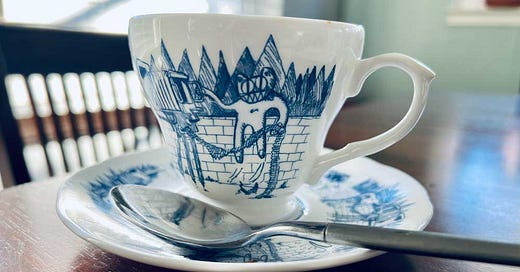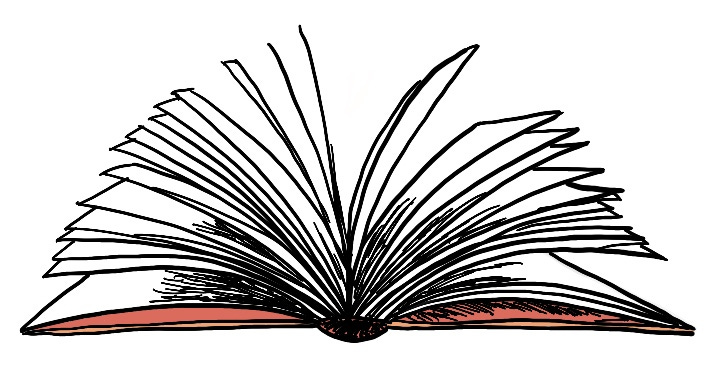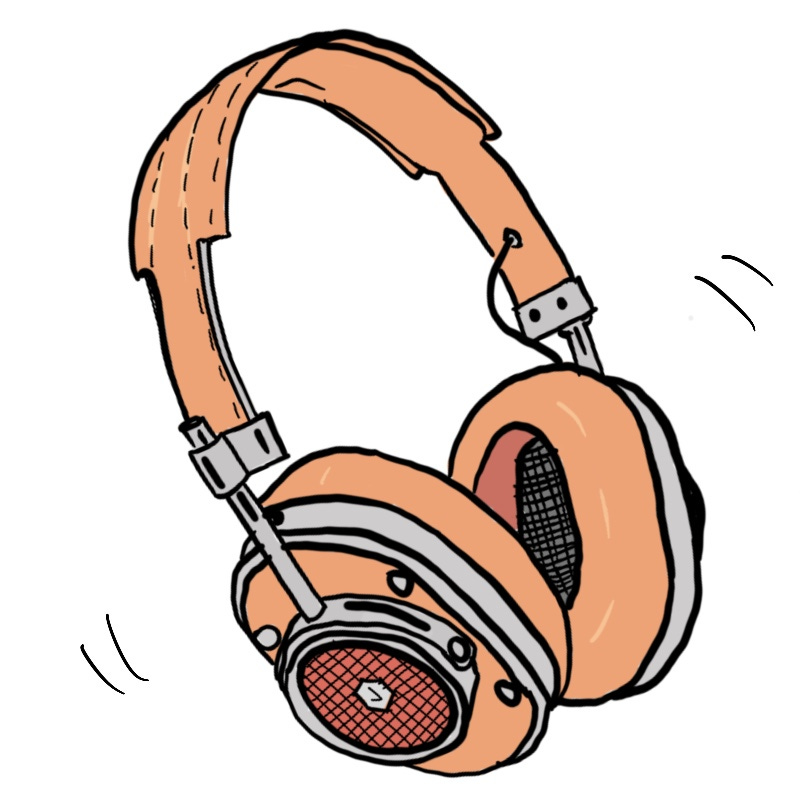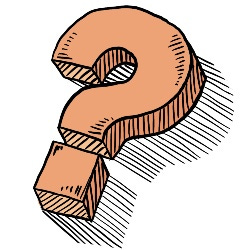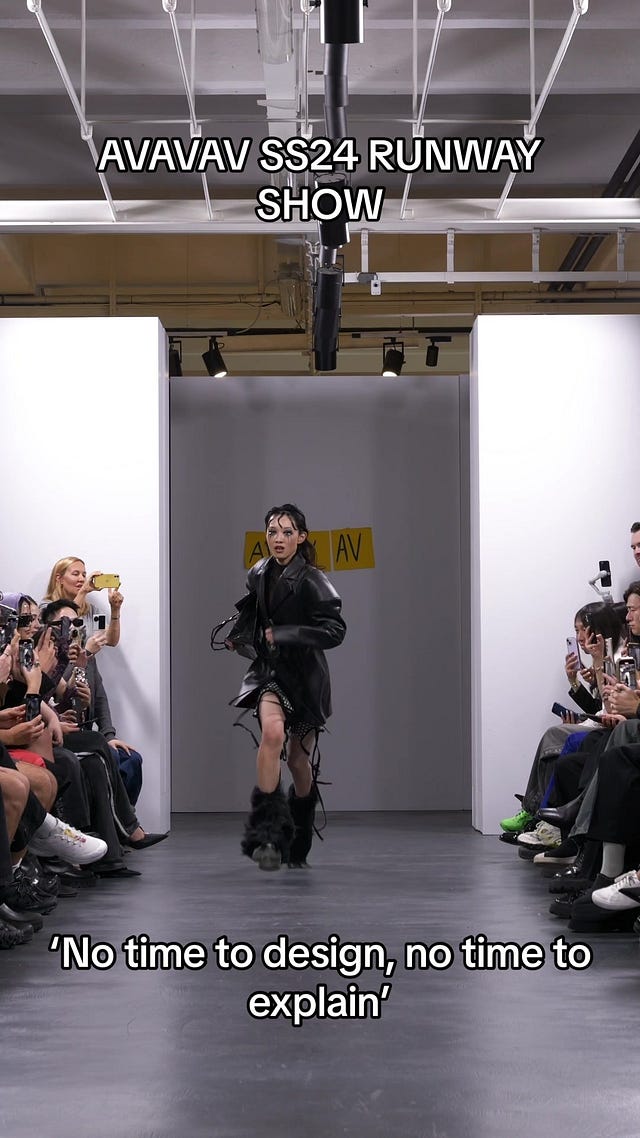Don’t like reading? Allow me to read it to you 👈
The cutlery drawer of my soul is always open. The number one item in this drawer is teaspoons. Yes, teaspoons.
Please, take one.
No, you don’t have to bring it back.
It is an open-soul drawer, brimming with the plentiful bounty of one of the most useful and sought-after implements in the universe—the common teaspoon.
This teaspoon is empathy. Please take it.
This one, understanding. You can have that too.
I listen to the sound of an array of teaspoons tinging peacefully together as hands reach in to seek.
One teaspoon of sugar in your cup. To sweeten your life. To add comfort and quietude.
One teaspoon to stir the hot and steaming liquid of sadness and doubt until it dissolves away.
Here’s one that’ll help dig a lost soul from a perceived cell of depression or panic.
This one here? Well, that’s a listening teaspoon. I am listening. I am saying nothing as you let it all out, as you get it all out, as the teaspoon sets you free.
Seriously. Take one. I’m not even looking.
In a 2004 scientific study monitoring “The case of the disappearing teaspoons”, results showed that over a five-month period in an office tearoom setting, 80% of teaspoons provided had evaporated. Vanished into thin air. It concluded that the nature of communal teaspoons was to be in a constant state of disappearing. Of wandering off. Of providing service in other rooms, on desks, and sometimes many miles away in employees’ houses.
At the end of the study, a figure was calculated. Of what it would cost to keep the supply of teaspoons at a level deemed constant so that no person would ever open a drawer, curse the sky, and end up stirring their coffee with a fork. For bean counters, this is the kind of study that makes their ledgers tingle.
A soul cutlery drawer—filled with teaspoons of compassion, empathy, understanding, and more—was not part of the study. There is no need to calculate the cost of keeping the teaspoon level high in a soul cutlery drawer, because:
It costs you nothing.
It is a self-replenishing drawer.
You fill it with your humanity.
The folks in accounting—those keeping score, like your ego or jealousy or sense of entitlement or whatever—will chastise you for losing teaspoons, but all you need to know is that the cost/no cost is relative to your belief in the circular movement of consequence.
Some folks call this Karma.
I call it Teaspoon Math.
Teaspoon Math does not mean you will not feel the cost of your drawer emptying. It does not mean that the depletion of your emotional currency is not flashing up on your register. The drawer may fill with your humanity and that’s all well and good in theory, but you are also human.
And humans keep receipts.
Being human is hard, what with the receipts and balance of good and evil within us, and all that guff.
It is challenging. A constant battle over… let’s say teaspoons.
It’s in our nature to hold onto our spoons. To hoard them. Keep them shiny and plentiful so that we survive, defeating all others with our abundant excess of teaspoons while they have none.
It is our nature to want to survive. Evolutionary.
But where is it written that for us to survive someone else must suffer? That we must deny the hand, ferreting around in our soul drawer for a listening or compassion or empathy spoon, that we must deny them? Our worry is always that the time will come when we will need to stir our own sadness or fill ourselves with sweet sugar and when we come to do that we will open our soul drawer and find it empty.
That is the fear. That is the Empty Drawer Syndrome. To have, says the syndrome, someone else must have not. No spoons for you!
Wake up, good people. There are plenty of spoons for everyone.
I’m not entirely sure how it happens—how Teaspoon Math works—but I think that the soul drawer is replenished in two primary ways.
First, we can bolster our collection by borrowing teaspoons from those who also leave their drawers open. This is when we ourselves need an ear, empathy, or understanding from others. These are teaspoons given willingly and with love. It is a permanent loan, but one that can also be paid forward in the future.
By leaving OUR drawer open.
This is simply the free exchange of the Teaspoon Economy. Tiny spoons flow freely in all directions. There are no transactions occurring—it just happens, as easily as breathing.
Humans again. We are in this together.
In this Teaspoon Economy, you must never assume that an influx of replacement teaspoons provided from external sources will keep your stock constant. Assume no influx will be forthcoming. Assume that there will always be an up and down and that sometimes the stock will be high, and sometimes quite low.
This is just the way it runs. The market at work.
Similarly, you should not automatically expect the same teaspoon to come back to you simply because you left your drawer open and it was there for the taking.
Expectation is a mug’s game and while, yes, we are dealing in mugs and teacups, the wound you feel when a teaspoon vanishes from your drawer, never to be seen again, is the wound of recognition. It reminds us of the constant work of being human.
Teaspoons flow in and out of drawers in communities and towns and cities and countries and across hemispheres and find their way to people desperately looking for one. Let the teaspoons flow. Do not track. Do not monitor. Do not keep score. To expect a reward of tit-for-tat-teaspoons is like water swirling in that cup looking for a drain.
It can be draining. Don’t get drained.
But so many people are taking my teaspoons and not bringing them back!
At certain times in history, people need more teaspoons. They just do. We are in one of those times. Do not question why. Do not lament your loss of teaspoons. Look to your heart. Your heart is the designated restocking agent. It has the master key to the supply closet.
Hearts. Is there anything hearts can’t do?
That is the second method of teaspoon replenishment. Know that your heart will easily and willingly provide, filling your soul cutlery drawer with a constant supply of shiny, handy, wonderful teaspoons of love, honesty, understanding, and whatever else someone needs a teaspoon for. Availability. Openness. All the good teaspoons.
Because teaspoons do a lot of things. For being so petite they are incredibly powerful.
One of the smallest items in the cutlery drawer and also the easiest to lose. They have no tines, so cannot stab even a pea. They can’t cut anything economically, neatly, or with any kind of precision. What they can do is provide. A teaspoon is a giver. It gives and gives and gives. Just the right amount of whatever you need—here comes the emotional support airplane you ordered. Open up.
You may look in your soul cutlery drawer one day and notice your teaspoon supply is getting low. It may cause you to wonder: “Why do people need teaspoons so much? Why are they constantly disappearing?”
There are many reasons. The world seems harsher, and people meaner. We have been made to think that the individual is more important than the whole. That society is made of one-on-ones and not one-to-manys.
Teaspoons.
Teaspoons are the key.
They are powerful conduits for the relationships between individuals, to connect them. Teaspoons are community builders. Always there. Always available.
Take one! No, you really do not have to bring it back.
You must never place more value on the continued ownership of a teaspoon than the potential comfort it can bring another person. Do not ask why they need it. Just leave your drawer open. Be open. If they want to tell you, they will tell you. Sit. Listen. Stir and be.
The Teaspoon Economy will be strong again. We can rebuild it. All drawers will fill once more—if we all just stop hoarding our teaspoons.
The teaspoon of course is a metaphor. Or a riddle—you decide. Your entire enterprise—that of being human—is not under threat from the loss of teaspoons. There is no operating budget in the business of being human, so how can it cost you anything?
It costs you nothing. It gains you everything.
What is it that kid in The Matrix says?
There is no spoon. It is not the spoon that bends, it is only yourself.
I mean, he was literally talking about existing in the unreal world of The Matrix, because the spoon literally did not exist. But hey, the teaspoons I’m talking about here don’t exist either. They’re not actual teaspoons.
But the bending thing.
That is a human thing.
A thing humans are capable of.
We create our own realities. Of who we can be. It would be easy to think of ourselves as being unbendable and forcing the things around us to twist and shape-shift to our will.
There can be no change externally without us bending internally. To give of our spoons freely and easily.
Teaspoons are what we give each other—what we owe to each other if you like. Yes, it’s a clumsy ‘trying too hard’ metaphor to be sure, and I apologize for all the teaspoon talk, but I also don’t.
To give without expecting anything in return. This is what it is to bend against the nature of us. To fight the instinct to climb higher while pushing the ladder away for someone else. To rally against the hoarding of the teaspoons because who knows when you may need one for yourself.
Bend, human! It costs you nothing. Open your drawer. And when someone reaches in, allow them to feel the comfort of that spoon and not the cutting blade of a hate or resentment knife.
We are all capable of giving and receiving teaspoons—of sharing the tea even—in the Global Teaspoon Economy. Compassion, empathy, love, understanding, and all those gooey words that speak to the better sides of our natures. Stir them in and may the teaspoons flow freely.
You will, over the course of your life, lose a lot of teaspoons. This is as natural as skin sloughing off in your sleep or losing hair in the sink. You will lose teaspoons for all your life. And again, I repeat, it will cost you nothing.
Friend, may your drawer always be open.
Yours in tiny thought,
Janeen
Go behind the scenes and see inspirations for this post👇
This week’s amends…
"It doesn't matter how sensitive you are or how damn smart and educated you are, if you're not both at the same time, if your heart and your brain aren't connected, aren't working together harmoniously, well, you're just hopping through life on one leg. You may think you're walking, you may think you're running a damn marathon, but you're only on a hop trip. The connection’s gotta be maintained."- Tom Robbins
On Rotation: “Something On Your Mind” by Karen Dalton.
The first time I heard this song I immediately got on Discogs and hunted the album down on vinyl and then wrote about it on a rarely updated section of The Stream called Music | Response. I really do need to do another post on that soon. I love talking about music, as you probably noticed with last week’s post. You can read some words I wrote about Karen Dalton’s album “In My Own Time” here.
This ten-minute video from Every Frame a Painting (which is no longer making videos unfortunately, but lots of good stuff on that channel), delves into the question: “How do you know when to cut?”
Editing a video every week is teaching me a lot, but I sometimes wish I had longer to work out how things go together. It’s a bit ‘seat of the pants’ and ‘time’s running out’ for me. It’s fun though. Another example of learning by doing, or as they say in this video:
“To really learn how to dance, you have to dance.”
Via Kottke
I know Paris Fashion Week is done and this is old now and the biggest story was the bedbugs, but this made me laugh.
Shameless Podcast Plug
Listen to audio versions of early issues of The Stream on my podcast, Field of Streams, available on 👉 all major podcasting platforms 👈
Here’s Apple

